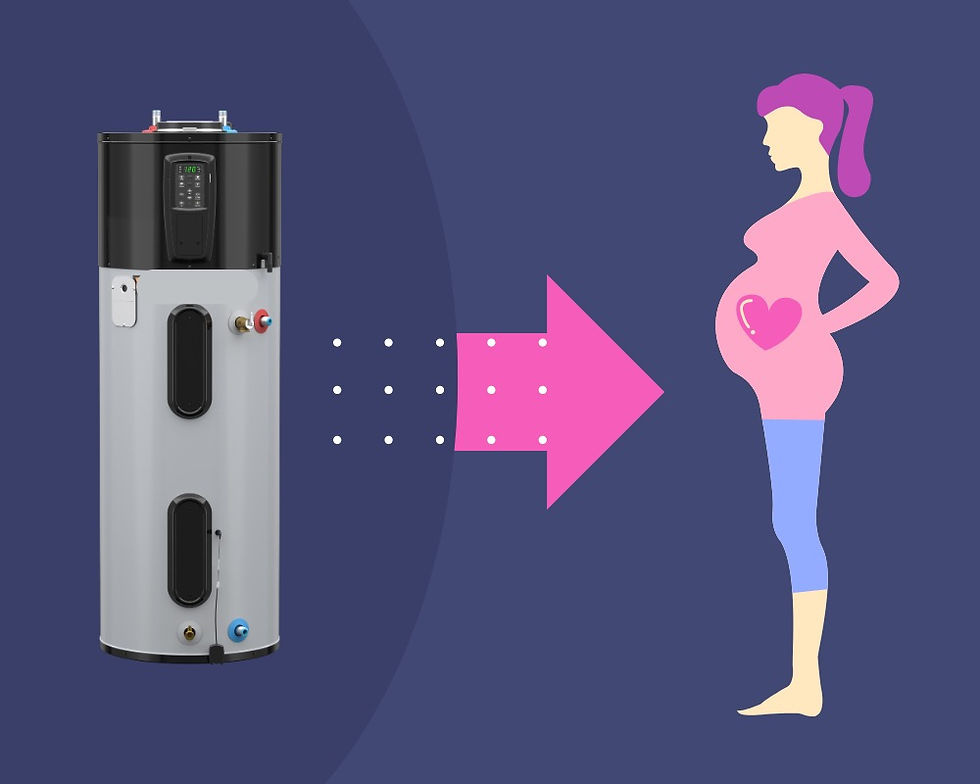Easy Swaps to Reduce Your Everyday Plastic Use
- Michael M. Luk
- Jul 15, 2021
- 4 min read
- Michael M Luk, Summer Intern 2021
Long-time GTLA volunteer Barbara O’Reilly writes:


"Inspired by Greentown's Plastic Free July, I did an inventory of my collection of laundry-related products. Stain removers: Now that I have 2 spray bottles I will find a larger, non-spray bottle to refill them. I did recently buy the cardboard bottle on the left. Even with the plastic cap it seemed a better choice than the coated cardboard boxes and the plastic jugs. Then the GTLA Plastic Free July email arrived with the suggestion of laundry strips. Check out the website for Tru Earth."
Single-use plastic packaging is one of the biggest contributors to the plastic pollution crisis. Did you know that the US produces more plastic waste per capita than any other country? Fortunately there are many easy swaps you can make that can greatly reduce your contribution to the problem. And keeping your food and beverages plastic-free is good for your health as well, as the chemicals added to plastic often leach into what you’re eating and drinking. Despite our efforts to recycle, 91% of our plastic waste is never recycled, meaning it ends up polluting our landfills, water, and air.
As part of GreenTown’s Plastic Free July Campaign 2021, Summer Intern Michael Luk put together this handy collection of swaps you can make to use less plastic. Thanks to all who sent in their suggestions!
We hope the next time you’re shopping, you’ll pause and ask “Is what I’m buying available in glass, metal or cardboard?” These three types of packaging are VERY recyclable and there are profitable markets eager for these materials. Also, plain fiber packaging (thin cardboard, pulp, cotton cloth, paper) is biodegradable and therefore compostable. Best of all, try to shop in bulk using your own reusable containers, or buy unpackaged items when you can!
Where can you go for sustainable and plastic-free shopping?
Hear what GTLA volunteer Kim Jelfs has to say about bulk shopping—she’s been doing this for years!
Author Michael Luk explains one plastic-free swap that he is doing in the kitchen.
GTLA volunteer Donna Staton describes how to reduce laundry related plastic waste.
Kim Jelfs, GTLA volunteer from Sunnyvale, shows how to make homemade deodorant, avoiding the plastic packaging and chemical additives all together.

Egg Cartons
come in plastic, styrofoam, and pulp/cardboard. Plastic and styrofoam are not recyclable. There are plastic egg cartons on the second shelf. There is a pulp egg carton that is unfortunately wrapped in unnecessary plastic in the bottom left.)
The best option is to select the pulp egg cartons which are biodegradable.

Ice Cream
also comes in all sorts of containers. The most common materials, plastic and plastic-coated cardboard, are unfortunately NOT recyclable or hard to recycle. The best swap you can make is to buy ice cream that comes in glass or metal jars. If there aren’t any glass or metal containers, cardboard with plastic lining is the next best option.
Beverages
Most beverages come in a variety of containers such as plastic, cardboard, and glass. An easy swap is to buy cardboard or glass containers instead of plastic containers. This not only applies to the orange juice shown here, but to beverages such as milk, other juices and smoothies.


Remember aluminum is virtually infinitely recyclable


Plates and Utensils
Plastic utensils and plates are commonly used, however, there are many plastic-free alternatives available. Instead of using plastic foodware, switch to using compostable paper plates and metal or bamboo utensils. An even better alternative is to bring your own reusable plates and utensils so that there is zero waste.


Dental Supplies
Think about the plastic waste from all the toothbrushes, toothpaste, and floss you have gone through. All of this plastic can be swapped out for plastic-free alternatives. In the picture on the right, there is a bamboo toothbrush, toothpaste tablets in a glass jar, toothpaste in a glass jar and silk floss in a glass jar. Instead of using a plastic toothbrush, use a compostable bamboo toothbrush. Instead of using a plastic tube of toothpaste, use toothpaste tablets. Instead of using plastic floss in a plastic container, use silk floss in a glass container.


Shampoo and Conditioner
Instead of buying shampoo and conditioner that come in plastic bottles, use bar shampoo and conditioner in cardboard and paper packaging for a plastic-free swap.



Antacids!
Switching from tablets in a bulky plastic container to those wrapped in paper greatly reduces unnecessary packaging! Not to mention the latter is easy to carry in a pocket or purse.
One GTLA member commented “…if you need a tablet in the middle of the night, it’s much quieter to take one from a roll, thereby not waking your spouse…”
Plastic Bags ...
Now that you shop with reusable bags and are reducing your “plastic footprint,” what to do with all those accumulated plastic bags and wrappings? Many can be recycled if you bring them to stores like our local Safeway.
Safeway partners with Trex to collect and recycle this “low quality” thin, flexible plastic polyethylene material known as plastic “film.” Trex uses the material to make lumber substitute building material (it takes over 2000 plastic bags to make a 16-foot composite lumber board). In addition to recycling plastic bags, you can also recycle plastic wrapping from toilet paper bundles, paper towels, paper napkins, beverages, etc.
Yes--lots of energy wasted to do this--and even the plastic board will eventually be plastic waste--but for now it may be a temporary solution. Of course, best not to make unnecessary plastic bags in the first place!!


We welcome YOUR suggestions for reducing plastic around the house!
Send your ideas to waste@greentownlosaltos.org, or post on IG and tag GTLA @greentownlosaltos.




Comments